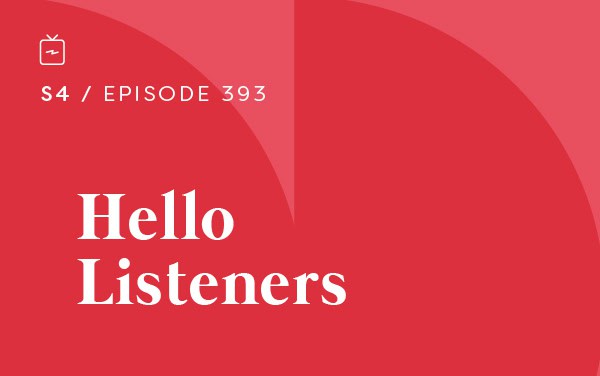
by Kris Oyen | Aug 29, 2022 | Podcast
Podcast: Play in new window | Download
Subscribe to the Recovery Elevator Podcast Apple Podcasts | | More
Episode 393 – Hello Listeners
Today we have Alina. She is 32, from Northern California, and has been sober since June 20, 2022.
Fire Brew: https://www.drinkfirebrew.com/
Ditch the Booze/Mindfulness: https://www.recoveryelevator.com/cafere/
Highlights from Paul
If you are in a cycle of continuous Day ones, keep showing up and listening to the podcast. We believe in you.
If you have quit drinking, don’t forget incredible short memory can get us any time. Don’t look back. That old way of life didn’t work. Keep building the new.
If you are a normal drinker here to support someone, we are glad you are here. The opposite of addiction is connection, and we appreciate your support. The healing process is a collaborative effort that requires both parties to come together.
If you are in your teens or twenties, you are learning vital lessons and building resilience. When the dust settles, and your normal drinker friends begin to phase out of the party years as they marry and have kids, you will have acquired unique life skills that your friends don’t have. Your unique skills revolve around presence, listening to your intuition, taking life as it comes, loving yourself and others. You’re more grounded. Your roots go deeper. Also, be patient. I think it’s harder to quit drinking at a younger age, but with time, and each year around the sun, some of those challenges get easier. Time is working in your favor.
If you treat or support someone who struggles with, what is addiction? Addictions are adaptive behaviors leveraged to survive in unhealthy environments. Addictions are present when something is out of balance or not in harmony with our environment.
Keep the thinking mind in check. The mind has 60,00-70,000 thoughts per day, and science has shown that most of them are not valid. Keep doing the inner work, find your people, and show the world how it’s done.
Better Help: www.betterhelp.com/elevator – 10% off your first month. #sponsored
[13:04] Alina has been sober for two weeks. She has three kids, loves being outside, cooking, and reading. She immigrated to the US from Ukraine, is the youngest of seven, and had her first drink at age 16. Growing up, she had the impression that an alcoholic was someone who drank every day.
In 2018, Alina had her first blackout. She resolved to do something different. She listened to “This Naked Mind” by Annie Grace. Moderation never worked. During the pandemic, Alina went on vacation to Mexico and drank daily. Alina continued to learn about recovery, and she learned to see the similarities in other people’s stories. She is an active member of Café RE and enjoys the chats.
Paul’s Summary
Listeners, stick together. Choose love over fear. Choose peace over being right. If the conditions are right, we bloom as a species. If the conditions aren’t right, we don’t. Humans are so close to blooming on a large scale, and addiction is fast-forwarding this process. Addiction forces us to surrender, open up, and say yes to the flow of life.
Upcoming events, retreats, and courses:
- You can find more information about our events
Resources
Connect with Cafe RE – Use the promo code OPPORTUNITY to waive the set-up fee.
Recovery Elevator YouTube – Subscribe here!
Sobriety Tracker iTunes
Recovery Elevator-
Lighten Up.
I love you guys.
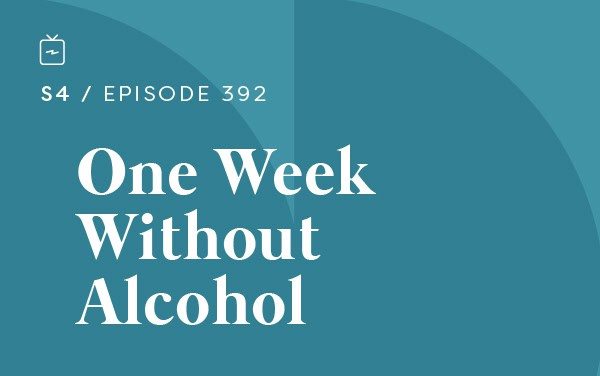
by Kris Oyen | Aug 22, 2022 | Podcast
Podcast: Play in new window | Download
Subscribe to the Recovery Elevator Podcast Apple Podcasts | | More
Episode 392 – One Week Without Alcohol.
Today we have Megan. She is 34, from Florida, and has been sober since June 22, 2021.
Gruvi: https://www.getgruvi.com/
Highlights from Paul
Stacking days, which is a day here, and a couple of days there, is fantastic, but your body and mind will respond faster to continuous sobriety, and I think a week is the most doable chunk of time. I know for me, even 30 days was overwhelming.
Day 1: Drink water, then more water. Eat at least one full, healthy meal. Your body is detoxing today. Anxiety is part of this. Embrace the process. Remember the pain. Exercise will help with sleep. Sleep won’t be great, and night sweats are expected. Expect cravings, and ice cream is your friend.
Day 2: Expect to be tired, exhausted, and anxious. Drink water, sleep, eat ice cream and worry about sugar later.
Day 3: Sleep should improve and welcome back appetite. Eat a healthy breakfast.
Day 4: Your body is healing. Drink water, sleep and eat (sugar does help with cravings.)
Day 5: What happened? You may be sleeping better, and you are hungry. Eat some healthy food and don’t worry about calories. Your brain is coming back on, which has two sides: your cognition is better, and the thinking mind is on overdrive.
Day 6: Your confidence is building, and your energy begins to return. Inflammation begins to dissipate.
Day 7: Sleep! Cellular restoration. Mental clarity improves.
Tips for week one:
Drink plenty of water
Exercise for at least 20 minutes. It gets endorphins going
Eat at least one meal with healthy greens
Put pen to paper and capture your insights
Remember, it’s a week and not forever.
Seven days is the start of the healing process. Your seven days await – go get ’em.
Paul describes PAWS (Post Acute Withdrawal Symptoms) in this video
https://www.youtube.com/watch?v=esHLnz-BUXw&t=1s
Better Help: www.betterhelp.com/elevator – 10% off your first month. #sponsored
[15:40] Megan has been sober for over a year. She lives in Orlando, has two kids, is a social worker, and is getting a master’s in criminal justice. She loves to travel and has been to 25 countries. She loves the beach, music, theater, working out, and theme parks.
Megan grew up in a conservative religious home with no alcohol in the house. Her grandfather was a recovering alcoholic. Alcohol was a big part of her family history, and Megan experienced a lot of generational trauma. Megan’s father passed away when she was 15, and her childhood abruptly ended. Coincidentally she had her first drink that year.
Megan started using alcohol as a coping mechanism in her early twenties. Her marriage, work, and being a grown-up were a lot to manage. In 2021 she started working for a men’s prison, which changed her life. Giving something back and witnessing other people’s trauma helped her harness her inner strength. Megan was able to share her story and learned to adopt solid self-care practices. Slowly, she started to heal.
Today, Megan sees sobriety as a beautiful way to live, even if incarcerated. She credits the men at the prison with helping her to get sober. Her sobriety tools include self-care, Café RE, leveraging an accountability partner, focusing on the good in life, and great friends. Instagram: magicalsobermama
Kris’s Summary
Together is always better. Kris just returned from the Bozeman retreat, and he loved getting to see all the participants.
Upcoming events, retreats, and courses:
- You can find more information about our events
Resources
Connect with Cafe RE – Use the promo code OPPORTUNITY to waive the set-up fee.
Recovery Elevator YouTube – Subscribe here!
Sobriety Tracker iTunes
Recovery Elevator-
We are the only ones who can do this, but we don’t have to do it alone.
I love you guys.
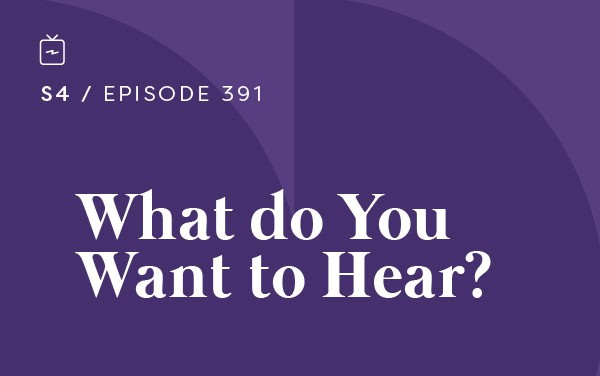
by Kris Oyen | Aug 15, 2022 | Podcast
Podcast: Play in new window | Download
Subscribe to the Recovery Elevator Podcast Apple Podcasts | | More
Episode 391 – What do you Want?
Today we have Polly. She is 50, from Minnesota, and has been sober since December 23, 2021.
Ditch the Booze Mindfulness Course starts 9/20.: https://www.recoveryelevator.com/cafere/
Recovery Fit – Paul Lapine. Lapine Fitness Center. https://Lapinefit.com/recoveryfit Insta:Paul_Lapine_
Highlights from Paul
Paul shares that he created the podcast to create a new level of accountability for himself when he quit drinking. He is grateful for his listeners and proud of how the podcast has evolved since the first recording. Paul would like to hear more from listeners about what they want to hear during the intro portion of the podcast.
Email Paul at: info@recoveryelevator.com
Better Help: www.betterhelp.com/elevator – 10% off your first month. #sponsored
[10:09] Polly has been sober for six months. She is a high school English teacher, has two daughters, and has been married for 24 years. She enjoys animals, running, the outdoors, camping, and family adventures.
Polly’s parents drank, but not to excess. Turning 21 was a right of passage, and Polly waited to drink until then. In college, Polly partied, partially as an act of rebellion. After graduating, drinking was a weekend social thing but not an issue. Polly’s husband was not a daily drinker, which was initially a red flag. There was drinking everywhere, from sporting events to book clubs to unwinding from work.
As time progressed, Polly started hiding how much she drank from her husband. She slowly started gaining weight, and drinking/eating/negative emotions became a spiral for Polly.
Polly’s husband asked her to get treatment and told her she was on the verge of losing her family, friends, and job. She was in treatment over the Christmas holiday. She was violently ill during detox, and the detox nurse told her never to forget how sick she was. She appreciated how much people embraced her during treatment. She vowed to herself that she would give back and described treatment as the best experience of her life.
After leaving treatment, Polly leveraged the tools she learned in treatment and recognized that cravings are temporary. Alcohol still calls to her at six months sober, but she works on it daily. Her husband quit drinking a week before Polly went into treatment, which made her home more supportive. Polly is outspoken about her cravings and regularly asks for help. She attends AA meetings; she has a sober community and is transparent about her addiction with those close to her. She talks to her daughters regularly about her addiction. Polly hopes her experience ends her family’s addiction cycle so her daughters never have to choose treatment. Polly describes sobriety as the most challenging thing she has ever done, but she is also proud of her success. She carries some shame for what she put her family through while drinking.
Paul’s Summary
Paul believes adding joy, fun, and creativity to your life helps you to maintain sobriety and live a life you don’t need to escape. Paul reminds listeners not to take themselves too seriously, to find joy, and don’t let healing be painful.
Upcoming events, retreats, and courses:
- You can find more information about our events
Resources
Connect with Cafe RE – Use the promo code OPPORTUNITY to waive the set-up fee.
Recovery Elevator YouTube – Subscribe here!
Sobriety Tracker iTunes
Recovery Elevator-
Lighten Up.
I love you guys.
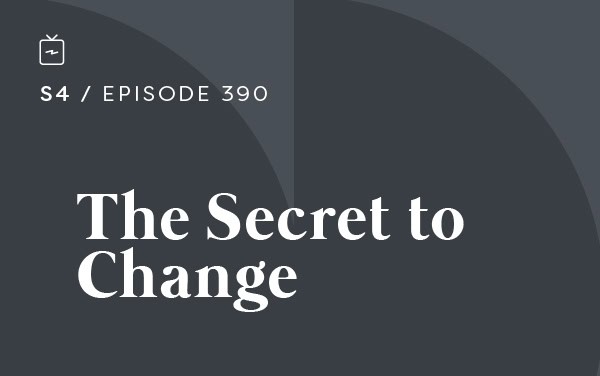
by Kris Oyen | Aug 8, 2022 | Podcast
Podcast: Play in new window | Download
Subscribe to the Recovery Elevator Podcast Apple Podcasts | | More
Episode 390 – The Secret to Change
Today we have Jess. She is 37, from Ontario, and has been sober since May 7, 2022.
Ditch the Booze Mindfulness Course starts 9/20.: https://www.recoveryelevator.com/cafere/
Recovery Fit – Paul Lapine. Lapine Fitness Center. https://Lapinefit.com/recoveryfit Insta:Paul_Lapine_
Highlights from Paul
YOU ARE GOING TO MAKE IT! Anyone who doesn’t quit quitting eventually creates distance from alcohol. “The secret of change is to focus all your energy, not fighting the old, but building the new.” Socrates. This journey is about transformation. It’s an invitation to create a life where alcohol isn’t needed. It’s about letting part of you go. It’s about saying goodbye to the aspects of your life that aren’t working,
Paul suggests fighting the old is a waste, and addiction is a messenger letting you know your life is out of balance. Desperation leads to surrender, which leads to openness and willingness. Don’t resist change as it is one constant you can count on.
Music Submissions – email edited versions to: info@recoveryelevator.com
Better Help: www.betterhelp.com/elevator – 10% off your first month. #sponsored
[11:31] Jess has been sober for two months. She is an accountant for a rehab hospital and enjoys reading, camping, cooking, and paddleboarding with her dog. She lives in Ontario, Canada, and has two children.
Jess came from a family of drinkers. Her Dad was a heavy drinker. She started experimenting with alcohol in her early teens. At age 14, her Dad died suddenly, and her Mom’s mental health deteriorated as a result.
Jess hosted parties and smoked pot. Since her family didn’t talk about things, drinking was an escape. All her friends drank and smoked, so it seemed commonplace. At one point, she started skipping school, and her sister intervened. Jess slowed down and appreciated the attention from her sister.
After high school, she took some random jobs and habitually stopped working, excusing her behavior with feigned sicknesses. She made lots of excuses but never addressed the root problem. She quit her jobs before she got fired. Her temper flared when her drinking hit a certain point, and she became a monster. Jess moved back in with her Mom to curb expenses, and her drinking slowed slightly. Six months later, she moved in with her boyfriend, and they were drinking buddies.
Jess got pregnant and abstained throughout her pregnancy but picked up again as soon as the baby was born. She bought into the “mommy wine culture .”Her Mom had dementia. Being around someone with dementia was difficult, and Jess’ drinking escalated. Eventually, she went to an online AA meeting and cried. She felt so welcomed. She counted minutes to hours, and finally, it got easier. She is now grateful to be present with her kids and is learning to like herself.
Kris’s Summary
Kris is looking forward to Recovery Elevator’s sober retreat. Kris has learned to listen to others, be present, and hold space for them. He has fun with his sober people. Kris encourages listeners to find their way to go deeper and have some fun. Challenge yourself to take the next step.
Upcoming events, retreats, and courses:
- You can find more information about our events
Resources
Connect with Cafe RE – Use the promo code OPPORTUNITY to waive the set-up fee.
Recovery Elevator YouTube – Subscribe here!
Sobriety Tracker iTunes
Recovery Elevator-
It all starts from the inside out.
I love you guys.
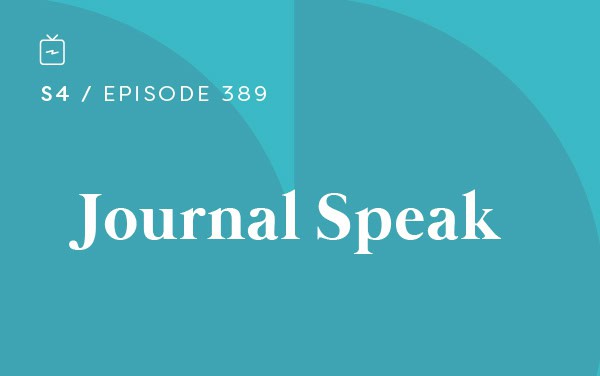
by Kris Oyen | Aug 1, 2022 | Podcast
Podcast: Play in new window | Download
Subscribe to the Recovery Elevator Podcast Apple Podcasts | | More
Episode 389 – Journal Speak
Today we have Christy. She is 42, from Denmark, and has been sober since April 5, 2022.
Costa Rica 2023: https://www.recoveryelevator.com/costarica2023/
Exact Nature: https://exactnature.com/RE 20
Highlights from Paul
Paul talks about “journal speak,” an informal, off-the-cuff style of journaling. The point is to get unprocessed, uncomfortable emotions out of you. It makes you feel less alone and more connected to yourself. This is a significant component connecting with the raw, unheard, vulnerable, pissed-off version of you. When you feel a craving coming on, this is one of the best times to do this because a part of you is screaming to be heard. Paul suggests starting with 5 minutes in the morning and 5 minutes at night. Make it informal, with no spelling or grammar check, and toss or burn it when you finish. Generally, you will find that you feel better and have cleared your mind.
Better Help: www.betterhelp.com/elevator – 10% off your first month. #sponsored
[10:58] Christy has been sober for eighty days. She lives in Denmark, is from North Carolina, and is an agile coach in IT. She is married with two children,
Christy describes herself as a boring child who didn’t get into trouble. She was active in sports and music. Alcohol was always present in her life. She remembers the DARE program in high school and decided to avoid drugs and alcohol. She met her husband and married young. Christy drank socially, but there were no red flags.
In 2004, her father was diagnosed with lung cancer. He was age 47. Christy knew she needed to be strong. He passed in 2007. Unaware of how to process the grief, Christy pushed through, went through some counseling, and had a baby. After giving birth, she experienced anxiety and high blood pressure. She spiraled downward. Alcohol was a great way to shut down her brain. She gave birth to her second son and immediately returned to drinking and felt okay because the Mommy wine culture made it alright.
When moving to Denmark, she knew she needed to address her drinking because she had started sneaking alcohol. The geographic solution didn’t work. The trauma of her Dad’s death brought on emotions Christy could not process. She began taking days off and going to the liquor store early while her husband was at work and her kids were in school. Her drinking progressed, and she could secretly consume a whole bottle of wine. Her panic attacks got worse, and she didn’t realize it was the progression of her drinking that was causing the panic attacks.
Christy told her doctor about her problem. She started listening to recovery podcasts and saw a new counselor to deal with her grief and health anxiety. Her self-talk was, “don’t think, drink.” The anxiety was debilitating. She was depressed and had the shakes and the shame of uncontrollable drinking.
COVID and having the kids home 24/7 was challenging. When she got to the point where her children had to put her to bed, she knew she had hit rock bottom. Her marriage was in jeopardy.
Christy enjoys Café RE and often hosts some of the chats. She attends AA and Smart Recovery as well. She has learned it is okay to be vulnerable and not strong. Leaning on her husband is okay. She no longer has to be “the rock.” Her anxiety has improved, and her counseling is helping. Her greatest joy is that her son says he has his mom back.
Paul’s Summary
Paul talks about the anxiety that came with trying to fix his printer. He loves that he has learned to let emotions flow through him. Paul believes in all the listeners.
Upcoming events, retreats, and courses:
- You can find more information about our events
Resources
Connect with Cafe RE – Use the promo code OPPORTUNITY to waive the set-up fee.
Recovery Elevator YouTube – Subscribe here!
Sobriety Tracker iTunes
Recovery Elevator-
It all starts from the inside out. You can do this.
I love you guys.







